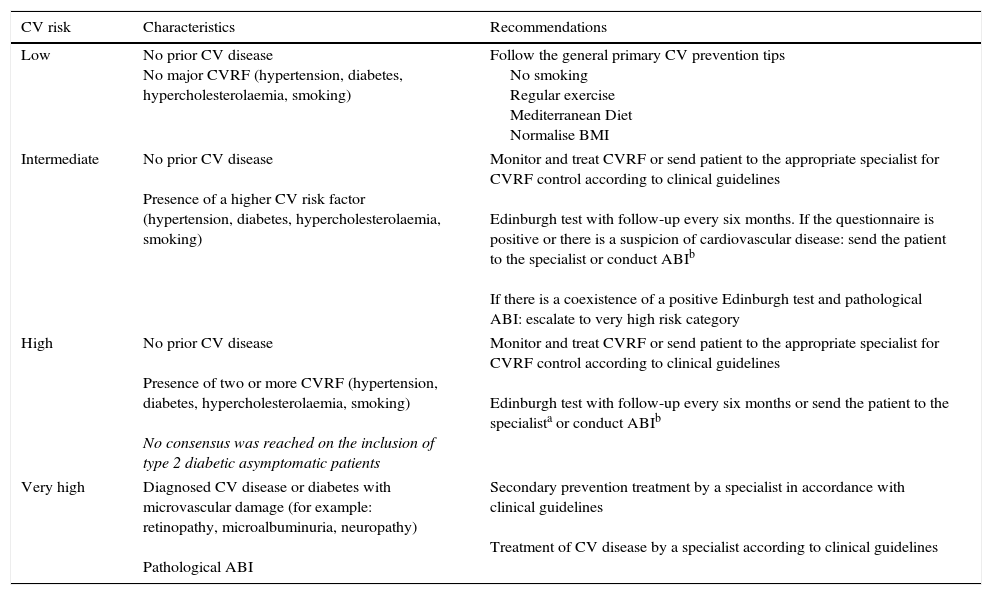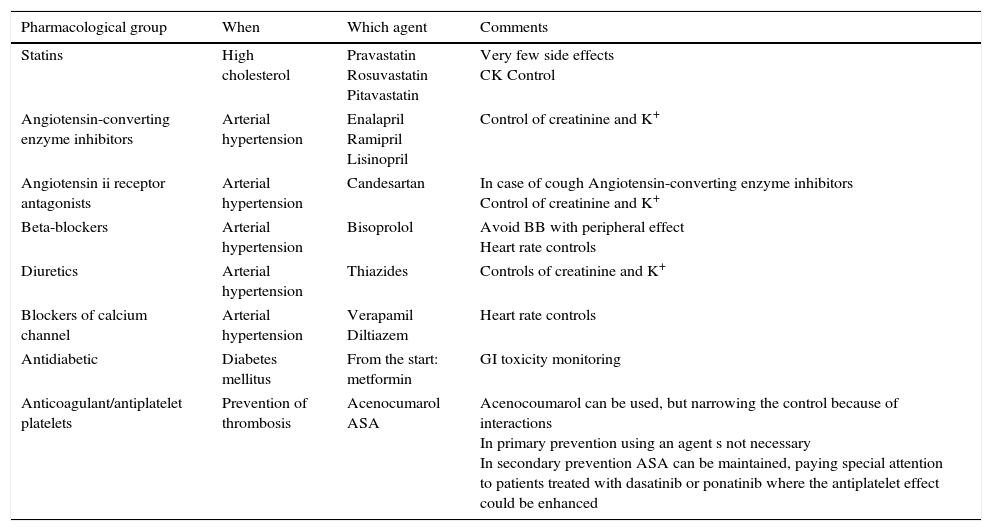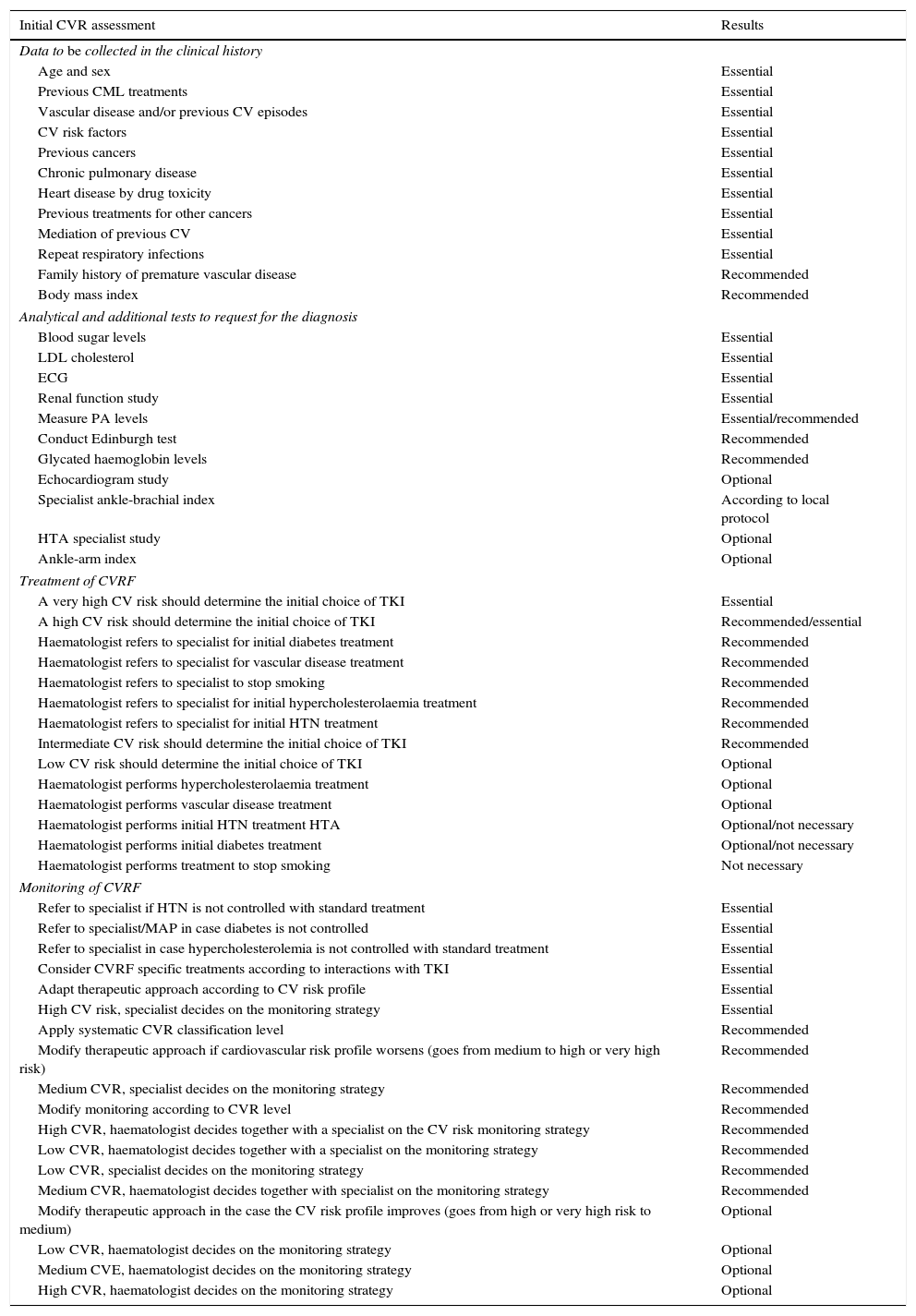The second generation tyrosine kinase inhibitors (TKI, dasatinib and nilotinib) used in chronic myeloid leukemia (CML) treatment have shown a benefit compared to imatinib in responses achieved and disease progression. However, both have been related to some cardiovascular toxicity, being more frequent in patients with cardiovascular risk factors (CVRFs). Nowadays, due to the lack of recommendations for CML patients, CVRF management is carried out heterogeneously. The aim of this work is to develop recommendations on the prevention and monitoring of cardiovascular events (CVD) in patients with CML treated with TKIs.
Material and methodsExperts from the Spanish Group of Chronic Myeloid Leukemia together with experts in cardiovascular risk have elaborated, after a consensus meeting, recommendations for the prevention and follow-up of CVE in patients with CML treated with TKI.
ResultsRecommendations regarding the necessary information to be collected on clinical history, treatment decisions, as well as treatment and monitoring of CVRFs are shown in this document.
ConclusionsTKI treatment requires comprehensive patient management from a multidisciplinary approach, in which both the prevention and management of CVRFs are essential.
Los inhibidores de la tirosina cinasa (ITC) denominados de segunda generación (dasatinib y nilotinib) empleados en el tratamiento de la leucemia mieloide crónica (LMC) han demostrado un beneficio frente a imatinib en respuestas alcanzadas y progresiones de la enfermedad. No obstante, estos inhibidores se han relacionado con alguna forma de toxicidad cardiovascular, ocurriendo en su mayor parte en pacientes con factores de riesgo cardiovasculares (FRCV). El control de los FRCV se debe considerar por tanto imprescindible para un tratamiento adecuado de la LMC. En la actualidad, debido a la falta de recomendaciones en pacientes con LMC, el tratamiento de los FRCV se realiza de forma muy heterogénea. El objetivo de este trabajo es elaborar recomendaciones sobre la prevención y el seguimiento de episodios cardiovasculares (ECV) en pacientes con LMC tratados con ITC.
Material y métodosExpertos del Grupo Español de Leucemia Mieloide Crónica, junto con expertos en riesgo cardiovascular, hemos elaborado, con base en una reunión de consenso, recomendaciones de prevención y seguimiento de ECV en pacientes con LMC tratados con ITC.
ResultadosEn este documento se muestran las recomendaciones de consenso con respecto a la información necesaria a recoger en la historia clínica, la toma de decisiones terapéuticas, así como el tratamiento y el seguimiento de los FRCV.
ConclusionesEl tratamiento con ITC requiere un manejo integral del paciente que deberá realizarse desde un abordaje multidisciplinar, en el que tanto la prevención como el tratamiento de los FRCV es fundamental.











